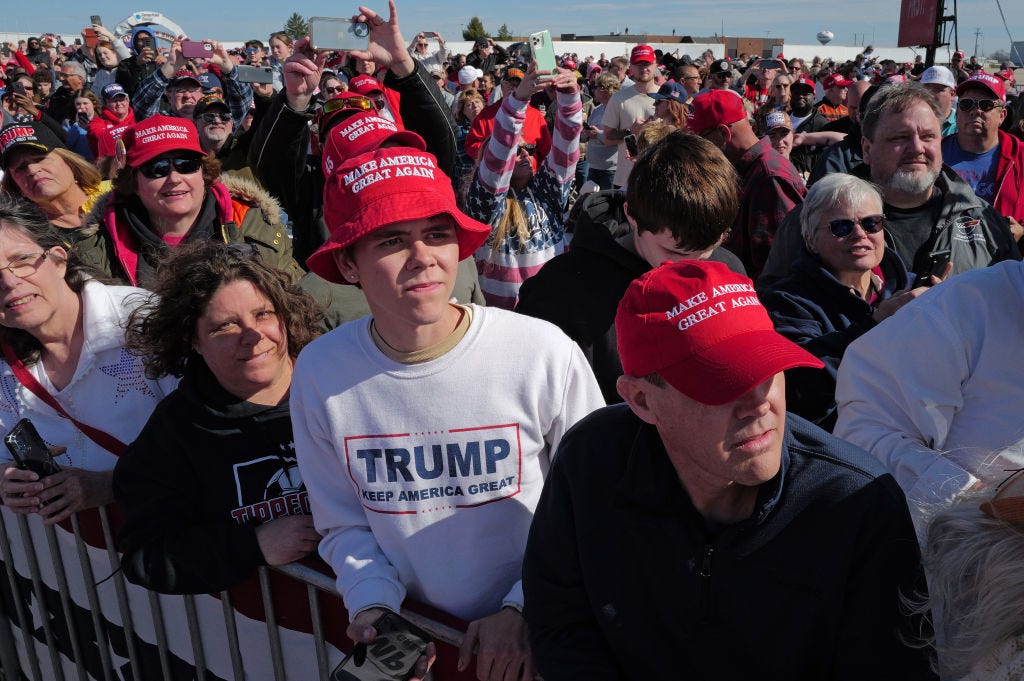- 24% of surveyed Republicans said presidents should be immune to crimes committed in office.
- The Supreme Court is set to hear arguments on presidential immunity at the end of April.
- Forty-six percent of Americans polled said they don’t trust the high court to rule impartially.
As the Supreme Court prepares to hear on the matter in April, about a quarter of surveyed Republican adults said that presidents shouldn’t be accountable for crimes they commit while in office.
According to a newly released poll from Ipsos/Politico Magazine of US adults conducted between March 8-10, only 24% of self-identified GOP supporters said they agree with the argument made by former President Donald Trump in court and social media.
"EVEN EVENTS THAT 'CROSS THE LINE' MUST FALL UNDER TOTAL IMMUNITY, OR IT WILL BE YEARS OF TRAUMA TRYING TO DETERMINE GOOD FROM BAD," Trump posted to Truth Social in January.
Conversely, 48% percent of surveyed Republicans said they opposed the idea, while 27% chose "don't know." Only 3% of Democrats and 8% of independents polled said they supported giving presidents total immunity during their time in the White House.
In February, a federal appeals court rejected Trump's immunity claim, noting in its filing that his stance on the matter "would collapse our system of separated powers by placing the President beyond the reach of all three Branches."
Weeks later, the US Supreme Court agreed to review the matter after Trump's legal team appealed the decision. According to the high court's calendar, justices will hear arguments on the case in late April.
The Ipsos/Politico Magazine survey also asked its respondents if they trusted the Supreme Court to give a "fair and non-partisan ruling" on Trump's immunity claims, with 46% of respondents answering "no," 24% "yes," and 29% to choose "don't know."
Nearly 70% of surveyed Democrats said they didn't trust the majority-Conservative Supreme Court's ability to rule impartially.
Legal experts told Business Insider at the end of February that while Trump's chances of victory in his Supreme Court case are low, the former president could still squeeze out a win from it by possibly delaying a trial in special counsel Jack Smith's federal case against him.
